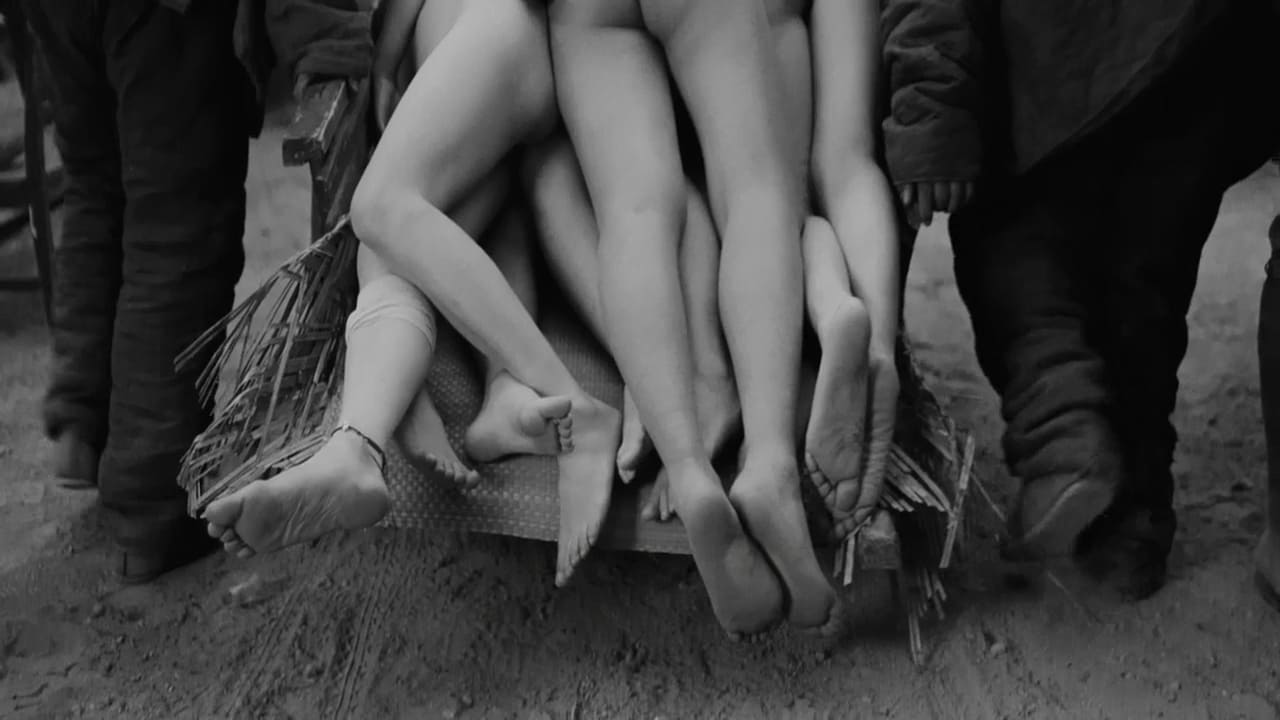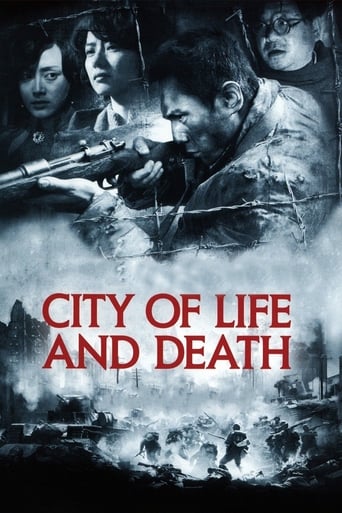

I like Black Panther, but I didn't like this movie.
... View MoreYour blood may run cold, but you now find yourself pinioned to the story.
... View MoreIt is a whirlwind of delight --- attractive actors, stunning couture, spectacular sets and outrageous parties.
... View MoreA clunky actioner with a handful of cool moments.
... View MoreFilm title: Nanking! Nanking Director: Chuan Lu Year of release: 2009 Before I saw the film "Nanking! Nanking", I have already watched some of the movies made back in the 80's/90's about the rape of Nanking. They are exploitation movies and never affected me or leave me with profound experience. I'm actually disgusted with them making such movies. Also most of the documentaries I watched never really do anything. But when I watched the movie "Nanking! Nanking!" directed by Chuan Lu, it really drained me emotionally. When I first time watched the movie in cinema, it shocked me. And I think Chuan Lu is a pretty courageous and a respected director. I need to explain the reason why he is a courageous and respected director. At the first of the film, the lens showed us broken fences of Nanking, and the city was full of the dense smoke. The images made audience feel repression. But it is just a beginning. When we move on with the film, we would find that there are just two colors for the film, black and white. Maybe most of the audiences will doubt that if there is a problem of the film. Why it is not in color. But audiences will agree with the color soon. There is no more other color can fit this history than black and white. It is one of the reasons that why I think Chuan Lu is a courageous director. He used the black and white to explain the war. It is pallid and helpless. We can really feel the depressive emotion, which was brought from the color of the movie. And the most difference between "Nanking! Nanking!" and other same theme movies is the position of the director. Most of the directors add their own emotion to their film, so that they try to put up the good side of Chinese soldiers into the film and forget the bad side. And they also vilify Japanese soldiers from everywhere in order to accuse Japan and vent their emotion. It is easy to lead audiences' emotion. But people always forget the real part. "Nanking! Nanking!" is the different one. Chuan Lu didn't use the Chinese soldiers or Chinese people as the mainline of the movie. He was talking about the rape of Nanking through a Japanese soldier's view. Maybe it was also not the real image of the event, but I can feel that it would be the image, which was the most close to the real. Chuan Lu is very audacious on this. He didn't stand on the position of Chinese people. He filmed the movie in neutrality. I also saw some comments of this movie online. Most people said that the description of Japanese soldiers was humanness in the movie, even though the movie showed the vulnerable side of Japanese soldiers. People cannot understand that with nation hatred. They think Japanese soldiers should be the totally devil in the rape of Nanking. So there were a lot of voice of censure on the comments of the film and the director. But in fact, we cannot lose our mind because of the nation hatred between China and Japan. We need to face the truth and we need to see the depth effects of the war. Of course, we can forget the nation hatred. But we also have to accept that Japanese armies are not the real devil. In this film, Chuan Lu tried to stand on a middle position to state the rape of Nanking. So we can feel that the whole movie is very repression but rationality. Chuan Lu is a courageous director, and he is also very respected. The movie stated the rape of Nanking. But it is not in order to lead off emotion of nation hatred. It is a warning to Chinese people, and also the whole world. It is not simply a movie for Chinese people to deepen their hates on Japanese; it is a movie for people all over the world to see, to experience and to explore what Japanese have done to Nanking in 1937, and what the war has bring to us. This movie was shot without hates without slants without sharp emotions. But the images always warn us that war is the real devil in the world. I can remember that when I came out from the cinema after the movie, the first feeling was that how good is the current world in peace. And I think that peace is the main theme of the movie, not hatred. And the movie has demonstrated the most powerful thing in the world: no matter Japanese admit the fault or not, we may forgive, but never forget.
... View MoreWhat a watch. The movie is excellently made, you can relate to the characters,and as others have stated it doesn't take sides. But it is a very dark movie, makes you really think what we are as human beings,and how we can **** things up this bad.Definitely not your Friday night movie, but a great, deep movie to watch when you feel like it. I saw it on television tonight without any knowledge of it beforehand. The utter sadness of the film is constantly present and it is just hard to watch altogether.As the top review said, it's like a punch in the stomach. Indeed this movie hurts. A lot.
... View MoreThis is one of the most compelling, horrific, thought provoking and shocking movies I have ever seen. It is doubtful that even a documentary could show the horrors of war so succinctly and clearly, as presented in this movie. The characters humanity and in some cases, in-humanity are vividly drawn, adding to the realism and the nightmarish atmosphere, where just like in a nightmare, there seems to be no escape. The cinematography is amazing, and the contrast by transposing the violence of man over the beauty of nature (with the sound of a gentle breeze) is so very effective. I'd read about the "Rape of Nanking" a long time before, and started watching this movie half expecting it to be so depressing, to get only halfway through before switching it off. Wrong. It was gripping from the start and introduced characters I wanted to survive no matter what, and to characters I hoped would die - violently. The movie had such an impact on me that by the end of it, I'm ashamed to say, I was wishing they had dropped a lot more than two atomic bombs on Japan to end World War 2 in the Pacific. Don't get the wrong idea, this is not an anti-Japanese film, more an exposition of what the human animal can do at its worst - in this case the Japanese in 1937. I know that many other atrocities have been committed by other nations since, and unfortunately, will be in the future. To plagarise from another reviewer - we should forgive but not forget.
... View MoreHaving just recently subjected myself to the almost documentary-like horrors of the Russian film COME AND SEE (about as sobering an experience as can be had), I opted to push my luck and try CITY OF LIFE AND DEATH. I've seen a number of documentaries regarding Japan's invasion of China, so I knew what to expect (although I DIDN'T expect the opening scenes, which harked back to the gritty, hand-held carnage of SAVING PRIVATE RYAN). In fact, CITY OF LIFE AND DEATH is actually more than a little forgiving in some of its depictions: characters who may or may not have been as sympathetic to the "lesser beings" are given the benefit of the doubt (no doubt by way of presenting a more "balanced" view of rape and wholesale slaughter). (Note: in one documentary I saw, a recaptured prisoner in a Nazi concentration camp was hung for all to see and a note was pinned to his chest: "I'm back," it read. And you thought the Nazis had no sense of humor...)
... View More